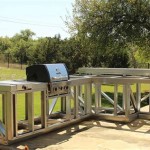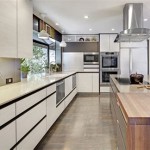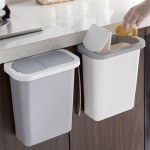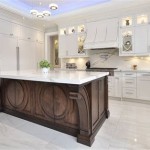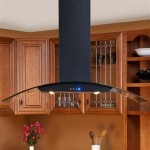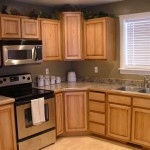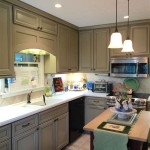Kitchen Worktop Types: Pros and Cons
The kitchen worktop is a central element in any kitchen, serving as a surface for food preparation, cooking, and dining. It is also a prominent design feature that can significantly impact the overall aesthetic of the space. With numerous materials available, choosing the right worktop can be a daunting task. Understanding the pros and cons of each type is crucial to making an informed decision that aligns with your needs, budget, and style.
Granite Worktops
Granite is a natural stone known for its durability, scratch resistance, and heat resistance. Its unique patterns and colors add an element of natural beauty to the kitchen. Granite worktops are also highly resistant to stains and bacteria, making them a hygienic choice. However, granite is a porous material that can absorb liquids if not properly sealed. Regular sealing is required to maintain its beauty and functionality. Granite is typically more expensive than other materials, and its weight requires professional installation. It's often necessary to have the worktop custom-cut to fit the size and shape of your kitchen.
Quartz Worktops
Quartz worktops are engineered stone made from crushed quartz and resin. This combination creates a durable and non-porous surface that is resistant to scratches, heat, and stains. Quartz worktops come in a wide range of colors and patterns, offering a variety of stylistic options. Unlike granite, quartz does not require sealing. It's relatively low-maintenance and easy to clean. However, quartz can be susceptible to chipping and cracking if subjected to extreme impacts. It's also generally more expensive than laminate or butcher block worktops.
Laminate Worktops
Laminate is a cost-effective worktop material that offers a wide range of styles and colors. It is made from a core of particleboard or plywood coated with a layer of plastic laminate. Laminate is known for its durability, scratch resistance, and moisture resistance. It is also easy to clean and maintain. However, laminate can be susceptible to heat damage and is not as resistant to scratches as natural stone or quartz. It's also not as durable as other materials, can be easily chipped or scratched with sharp objects, and is generally less aesthetically appealing.
Butcher Block Worktops
Butcher block worktops are made from hardwood, such as maple, cherry, or walnut. They offer a warm, natural aesthetic and are known for their durability and scratch resistance. Butcher block worktops are also naturally antimicrobial and can be easily repaired and refinished. However, butcher block requires regular oiling to maintain its moisture and prevent cracking. It is also susceptible to water damage if not properly sealed. Butcher block worktops may be more expensive than laminate but less than granite or quartz.
Stainless Steel Worktops
Stainless steel worktops are a popular choice for modern and contemporary kitchens. They are incredibly durable, scratch-resistant, and heat-resistant. They are also very hygienic and easy to clean. Stainless steel is known for its sleek, professional look and its ability to withstand high temperatures. However, stainless steel worktops are highly reflective and can show fingerprints and smudges. It can also be noisy when objects are dropped on it and can be cold to the touch, particularly in colder climates. Stainless steel worktops are generally more expensive than laminate but cheaper than granite or quartz.
Solid Surface Worktops
Solid surface worktops are a non-porous material made from a combination of acrylic or polyester resin and mineral fillers. They are available in a wide range of colors and patterns, and they can be molded into various shapes. Solid surface worktops are resistant to scratches, stains, and heat. They are also easy to clean and maintain, making them a good choice for families with young children. However, solid surface worktops may be susceptible to chipping and scratching if subjected to extreme impacts. They also require specialized cleaners and can be more expensive than laminate or butcher block.
Ultimately, the best worktop for your kitchen depends on your individual needs, budget, and style preferences. Consider the advantages and disadvantages of each type before making a decision.

Kitchen Worktop Types Pros And Cons Modern Worktops

Pros And Cons Of 4 Popular Kitchen Worktop Materials

Sustainable Kitchen Design Countertop Options Pros Cons

A Guide To Choosing The Best Kitchen Worktop For You Doors Worktops

Kitchen Worktop Guide Fix

10 Popular Types Of Kitchen Worktops Pros Cons

Infographic The Pros And Cons Of Using Granite Worktops In Your Kitchen Stone Gallery

Quartz Worktops Pros Cons Benefits Disadvantages

10 Popular Types Of Kitchen Worktops Pros Cons

Diffe Kitchen Worktops Pros And Cons
Related Posts

